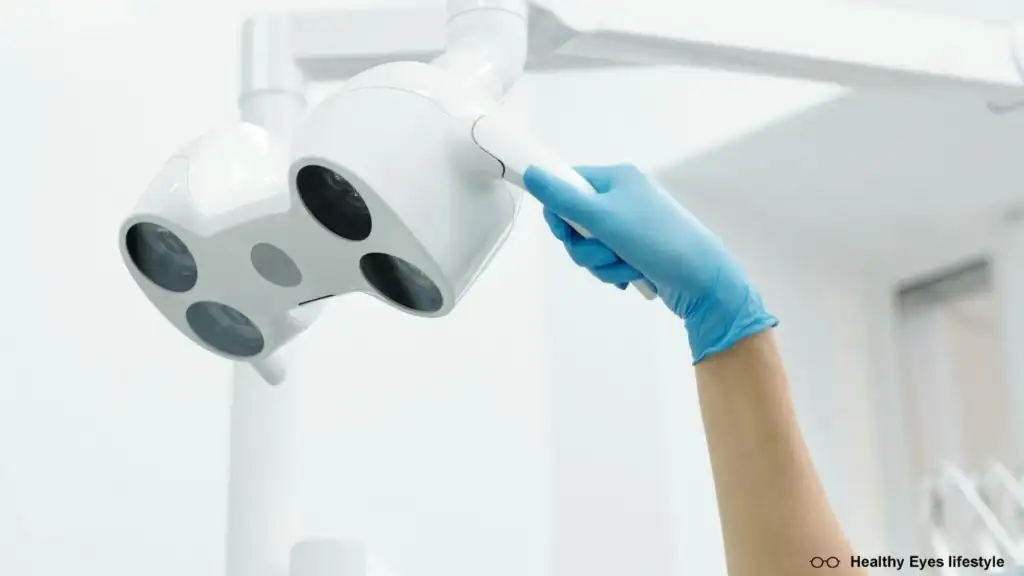Share This Article
Table of Contents
When you make the decision to undergo LASIK, you likely envisioned waking up with sharp, crystal-clear vision the next day. However, for many people, the immediate aftermath of LASIK includes an unexpected hurdle: blurry vision. If you’re experiencing this, you’re not alone, and the good news is that it’s often part of the healing process. Let’s explore why blurry vision happens after LASIK, how long it might last, and what you can do to ensure a smooth recovery.

Your LASIK Journey: From Perfect Vision Dreams to Post-Surgery Concerns
After taking the leap to improve your vision through LASIK, you likely felt both excitement and a touch of apprehension. You’re not alone in this. LASIK is a transformative procedure that has helped millions reduce or eliminate their dependence on glasses and contact lenses. But as you navigate the recovery process, experiencing blurry vision can be unsettling. Rest assured, this is a common part of healing, and understanding what’s happening can bring you peace of mind.
What Is LASIK and How Does It Work?
The Basics of LASIK Surgery
LASIK, or Laser-Assisted In Situ Keratomileusis, is a surgical procedure that reshapes your cornea to correct refractive errors like nearsightedness, farsightedness, and astigmatism. By creating a thin corneal flap and using a laser to reshape the underlying tissue, LASIK improves how light is focused on the retina, resulting in clearer vision.
Healing After LASIK: The First 48 Hours
The healing process starts as soon as your procedure is completed. During the first 24 to 48 hours, your cornea begins to stabilize. Blurry vision during this time is perfectly normal as your eyes adapt to the changes. You might also experience dryness, sensitivity to light, and halos around lights at night—all of which are temporary.
Common Causes of Blurry Vision After LASIK
Normal Post-Surgery Healing Effects
Blurry vision immediately after LASIK is often due to:
- Corneal swelling: Your cornea needs time to adjust after being reshaped.
- Dry eyes: The procedure can temporarily reduce tear production, leading to dryness and blurred vision.
- Light sensitivity: This can make vision seem hazy, especially in bright environments.

When Blurry Vision Persists: Potential Concerns
While most cases of blurry vision are temporary, certain issues may require additional attention:
- Flap complications: Rarely, the corneal flap created during surgery may not heal properly.
- Residual refractive errors: In some cases, a slight under- or over-correction may result in less-than-perfect clarity.
- Corneal ectasia: This is a very rare condition where the cornea becomes weakened and distorted over time.
If you experience severe pain, persistent redness, or no improvement in vision after a few weeks, it’s crucial to contact your surgeon.
How Long Does Blurry Vision Last After LASIK?
Blurry vision typically resolves in stages. Here’s a general timeline of what to expect:
| Timeframe | Expected Vision Clarity |
| First 24-48 hours | Initial blurriness; gradual improvement begins. |
| Week 1 | Fluctuating vision as the cornea stabilizes. |
| 1-3 months | Continued improvement, especially for night vision. |
| 6 months+ | Final vision results typically achieved. |
While most patients notice significant improvement within a week, full stabilization of vision can take several months. Your personal healing process may vary depending on factors like your age, prescription strength, and overall eye health.
Managing Blurry Vision After LASIK
Tips for a Smooth Recovery
Taking care of your eyes post-surgery is key to minimizing blurry vision. Here are some essential recovery tips:
- Use prescribed eye drops: These help keep your eyes hydrated and reduce inflammation.
- Avoid rubbing your eyes: This could disrupt the healing process and the corneal flap.
- Follow your surgeon’s instructions: Attend all follow-up appointments and adhere to the recommended aftercare routine.
- Protect your eyes: Wear sunglasses outdoors to shield your eyes from UV light and reduce sensitivity.
- Rest your eyes: Limit screen time and give your eyes a break to prevent strain.
When to Contact Your Surgeon
It’s important to monitor your recovery and be aware of warning signs that may indicate a problem. Contact your surgeon if you experience:
- Persistent or worsening blurry vision.
- Severe eye pain or redness.
- Sudden flashes of light or a noticeable loss of vision.

Preventing Long-Term Blurry Vision
Follow-Up Care and Lifestyle Tips
Preventing long-term issues requires diligence during your recovery and beyond. Here’s what you can do:
- Attend all follow-ups: Regular check-ups allow your surgeon to monitor your healing and address any concerns.
- Keep your eyes hydrated: Use artificial tears as needed, especially if you experience dryness.
- Avoid harmful activities: Stay away from activities like swimming or contact sports for the first few weeks to prevent infections or injuries.
- Protect your eyes from UV rays: Always wear sunglasses outdoors to maintain eye health.
Frequently Asked Questions About Blurry Vision After LASIK
How Common Is Blurry Vision After LASIK?
Blurry vision is extremely common in the days following LASIK. Nearly all patients experience some level of blurriness as their eyes heal and adjust to the new corneal shape.
Is Blurry Vision After LASIK Permanent?
In the vast majority of cases, blurry vision is temporary. However, rare complications like corneal ectasia or significant residual refractive errors may cause longer-lasting issues. Regular follow-ups can help address these concerns early.
What Can I Do to Speed Up Recovery?
- Follow your surgeon’s aftercare instructions closely.
- Use lubricating eye drops to combat dryness.
- Get plenty of rest and avoid eye strain.
Can Dry Eyes Cause Long-Term Blurry Vision?
Dry eyes are a common side effect of LASIK, but they’re typically temporary. Long-term dryness is rare and can often be managed with ongoing use of artificial tears or other treatments recommended by your doctor.
The Road to Clearer Vision: Patience and Care Pay Off
Blurry vision after LASIK can feel disheartening, but it’s important to remember that it’s usually a temporary part of your healing journey. By following your surgeon’s guidance and taking proper care of your eyes, you’re setting yourself up for long-term success. If you have concerns, don’t hesitate to reach out to your eye care provider—they’re there to support you every step of the way.
Call-to-Action
If you’re considering LASIK or have questions about your recovery, schedule a consultation with an experienced LASIK surgeon today. They can help you achieve your vision goals and ensure you feel confident throughout the process.



